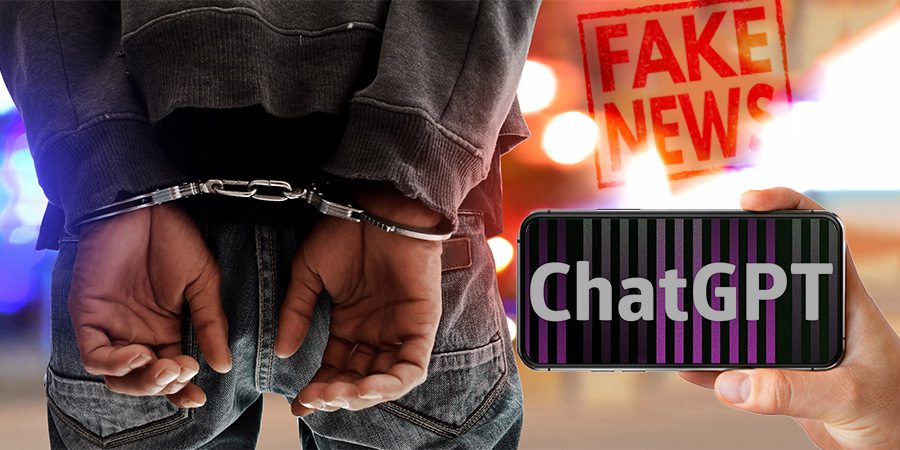In this article, we’ll look at the recent arrest of a man in China who allegedly used the AI-powered ChatGPT to generate and spread fake news articles about a fatal train crash.
This case highlights the potential misuse of artificial intelligence and raises questions about internet censorship and freedom of speech in China.
Key Takeaways:
- First arrest under China’s new anti-AI guidelines
- Suspect used ChatGPT to generate multiple fake news articles
- Over 15,000 views on false articles before removal
- Suspect charged with “picking quarrels and provoking trouble”
- ChatGPT officially banned in China, but accessible via VPN
- Train crashes are a sensitive issue in China
- New legislation to regulate deep fake content
- Chinese internet giants developing their own AI chatbots
The Arrest and the Use of ChatGPT
In a surprising turn of events, a man in the Gansu province of Northern China found himself detained for supposedly employing ChatGPT to write counterfeit news articles.
This development is believed to be among the initial arrests under China’s recently introduced anti-AI regulations, which, among other constraints, forbid the misuse of AI services for spreading “false information.”
The accused, known solely by his surname Hong, allegedly employed OpenAI’s chatbot to craft news articles that falsely depicted a deadly train accident, as stated in a police report covered by the South China Morning Post.
Upon discovering the article on April 25th, officials unearthed multiple iterations of the same narrative with different accident sites, all of which had been concurrently posted to 20 more accounts on Baijiahao, Baidu’s blogging platform.
Hong’s Motive: Generating Money Through Internet Traffic
Authorities in Gansu traced the articles to an independent company, owned by Hong, that operates several blog-style outlets.
According to the statement, local police claim Hong confessed to using ChatGPT to rehash existing viral news articles to circumvent duplicate content filters.
He then posted the altered stories online after learning from friends how to generate income through internet traffic.
The fraudulent articles garnered over 15,000 views before being taken down. China is one of the few countries that has blocked access to ChatGPT; however, residents can bypass these restrictions using a VPN connection.
Legal Implications and the “Picking Quarrels” Charge
Hong was specifically indicted for “picking quarrels and provoking trouble,” a catch-all offense that the South China Morning Post notes can be applied to suspects charged with creating and/or disseminating misinformation online.
The charge, however, is not limited to this application; it can also be broadly defined as disrupting public order or causing chaos in public places.
The ambiguous wording of the offense has been widely criticized for its potential to suppress free speech and detain activists who criticize the Chinese government.
Those found guilty can face a prison term ranging from five to ten years.
Chinese Regulations on Deep Fakes and AI Chatbots
The arrest comes at a time when China’s Cyberspace Administration has enacted new regulations in January to curb the use of deep fakes.
State broadcaster CGTN has dubbed it the nation’s first arrest of an individual accused of using ChatGPT to fabricate and circulate counterfeit news.
Formally known as deep synthesis, deep fake refers to highly realistic textual and visual content generated by artificial intelligence.
The new legislation prohibits users from creating deep fake content on topics already forbidden by existing laws governing China’s heavily censored internet. It also delineates takedown procedures for content considered false or harmful.
The Rise of AI Chatbots in China
Since the beginning of the year, Chinese internet giants like Baidu and Alibaba have endeavored to compete with OpenAI, unveiling their own renditions of the ChatGPT service.
Baidu introduced “Wenxin Yiyan” or “ERNIE Bot” in March, followed by Alibaba’s launch of “Tongyi Qianwen” in May, which roughly translates to seeking truth by asking a thousand questions.
In draft guidelines issued last month to solicit public feedback, China’s cyberspace regulator stated that generative AI services would be required to undergo security reviews before they can operate.
These reviews aim to ensure the proper use and safety of AI technologies within the country.
In addition to security reviews, service providers will be required to verify users’ real identities.
This measure is intended to hold users accountable for their actions when using AI-powered services.
Furthermore, providers must submit details about the scale and type of data they use, their basic algorithms, and other technical information to the regulators.
This increased transparency will help authorities monitor and control the use of AI services, ensuring that they align with China’s regulations and policies.
The implementation of these guidelines demonstrates China’s commitment to addressing the potential risks and ethical concerns surrounding AI technologies.
As AI advances and becomes more accessible, it is crucial for governments and companies worldwide to establish regulations and guidelines to prevent their misuse for harmful purposes.
The case of Hong and his exploitation of ChatGPT to spread false information serves as a prime example of the potential dangers associated with unregulated AI use.
Conclusion
The detention of the ChatGPT user in China highlights the need for vigilance and proper regulation of AI technologies.
As these technologies continue to develop and become more widely available, it is essential for governments and companies to introduce guidelines and regulations that prevent their misuse for malicious purposes.
Striking a balance between ensuring public safety and preserving freedom of speech will remain a challenge in the digital age.
It is vital for all stakeholders to work together to create an environment that fosters innovation while minimizing potential harm.
 Sections of this topic
Sections of this topic
















